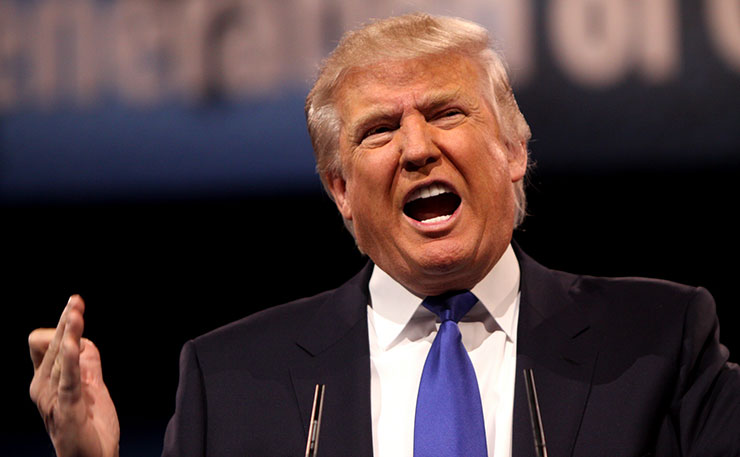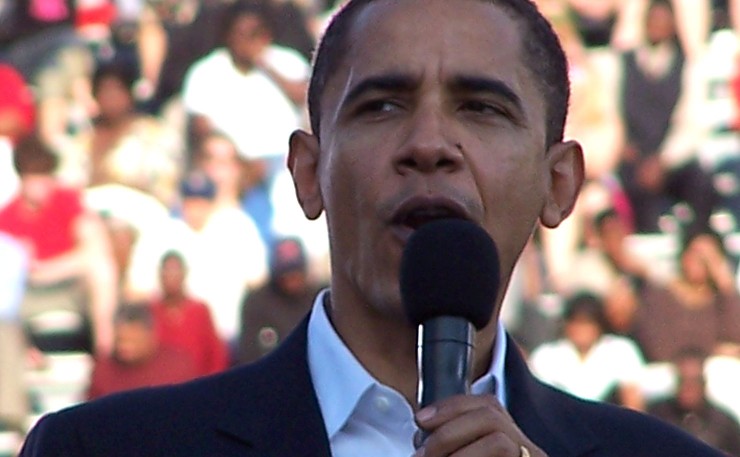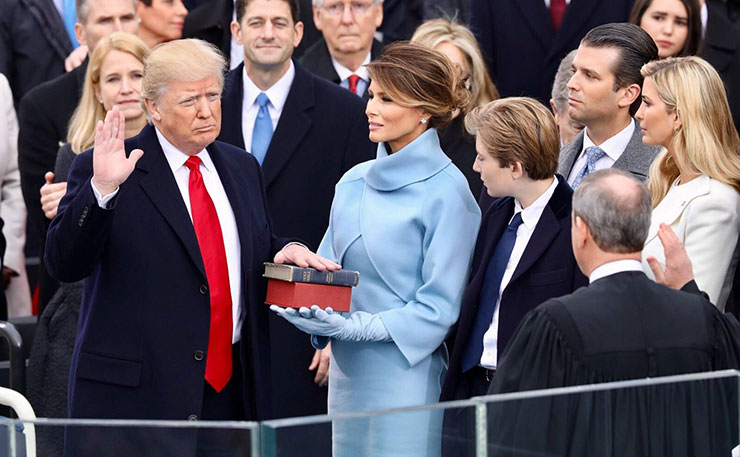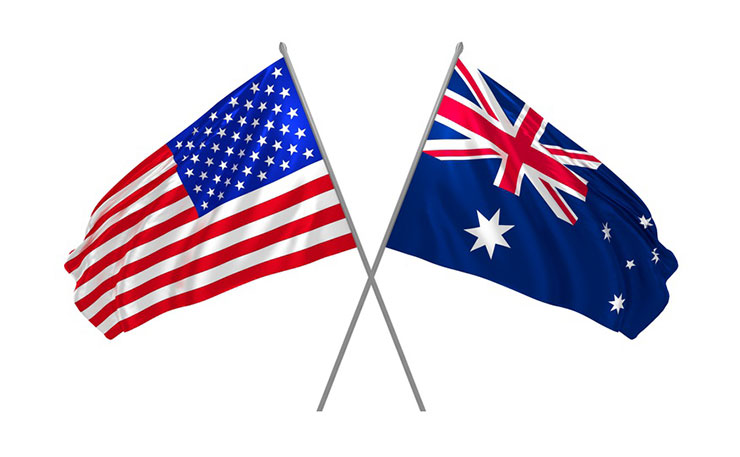Plenty has changed in the United States, writes Dr Richard Hil. But not all that much is different over here.
To witness Barrack Obama shaking hands with president-elect Donald Trump in the Oval Office was a sobering experience.
Whatever you might think of Obama’s presidency – and for many the initial hype was just that, hype – the handshake signalled a radical shift from the consensus-laden “audacity of hope” (circa 2008) to a new era of single-minded authoritarian nationalism.
For Obama, it must have been a shattering realisation that the forces that opposed him throughout his two terms in office – corporate billionaires, conservative foundations and think tanks, Tea Party advocates, Fox News, shock jocks and the rest – had won the day and were about to embark upon what Trump adviser, Steve Bannon, later referred to as the “deconstruction of the administrative state”.
Some people were deeply troubled by Obama’s constitutional insistence that the transfer of power had to be “smooth” in order to ensure the continuation of the democratic state. The presidency, we were told, was bigger than any individual. We had to do the right thing.
But this was no ordinary transfer of power. After all, the entire Trump campaign was grotesque theatre. The end game was the corporate takeover of government, so as to dismantle it, or at least to reduce it to a skeletal form.

As I watched the infamous clutch – and barely concealed grimaces – I wondered if and when a line should be drawn on these sorts of power transfers. Sure, Trump won the presidential race, but not with a majority of votes. Not by a long shot. Equally worrying was that President Trump seemed to lack the moral authority and respect required of his office.
Writing in the Huffington Post shortly after the election, legal scholars Nancy Altman and Ira Lupus argued that the legal authority granted to President Trump, “is not equivalent… to political legitimacy, moral authority, or entitlement to civic respect”. They further contend that Trump lacked political legitimacy: “He seized power through a cumulative set of actions that thoroughly undermine the integrity of the election outcome” including, among other things, “voter suppression engineered by the Republican Party; highly inappropriate and outrageous interventions in the election by the Director of the FBI; persistent demonizing and intimidation of a free press; and, most egregious, a deliberate attempt (openly encouraged by Trump himself) by a hostile foreign government to influence the election in his favour”.
Trump’s absence of political legitimacy is matched, Altman and Lupus insist, by a lack of moral authority: “[His] deficiencies of character”, they conclude, “undercut any notion that he deserves moral or civic respect”. For Altman and Lupus, Trump’s “deep flaws have been on full exhibit before, during, and after the election campaign. These character failures are revealed in his blatant and persistent lies; the scapegoating of vulnerable groups; eight years as a birther; a disgusting history as a sexual predator and racist; and conflicts of financial interest…”
Although other presidents have exhibited some of these characteristics, few in the lead-up to an election have demonstrated such brazenly aberrant behaviours, as well as open contempt for the political institutions and the media, as Donald Trump.
So, what went through Obama’s mind as he grasped the groper’s hand? We’ll probably have to wait for the memoir to get an answer to that one. Without wishing to labour the point, I do wonder why Obama and the conga-line of former office holders turned out for the inauguration. The whole experience was clearly excruciating, even for the bovine neo-conservative, George W Bush.
But there are bigger questions here that go well beyond the character of an individual. Trump of course is merely the celebrity front man of a much larger political project. The real masters of the universe – the billionaires, ideologues and propogandists – lurk in the shadows. But faced with Trump’s success, progressives now face the question of how they might respond to the Trump administration.

In thinking about this, I was struck by the words of actor Jane Fonda – no stranger to activism – who spoke at the Women’s March the day after the inauguration. Referring to the “predator-in-chief” with a notorious “thin skin”, she urged the crowd to “keep him really upset, off balance”, urging them to “never normalise him, let’s never legitimise him…”.
The US stock markets of course, had no such qualms. Following Trump’s State of the Union address on 1 March in which he went over familiar ground – more military spending, a crackdown on “illegal migrants”, abolition of Obamacare, tax cuts, more deregulation etc – the stock markets reached record levels, outstripping all previous hikes on such occasions. Stocks rose across the board, with the S&P 500, the DJIA, and the NASDAQ recording quantum leaps.
The finance sector was particularly buoyant following Trump’s speech, and construction materials and capital markets were also on the rise.
No-one knows whether this honeymoon will last, but since Trump’s inauguration on 20 January the value of the stock market has soared. Wall Street Journal correspondent and senior fellow in Economic Studies at the Brookings Institution, David Wessel, reported in mid-February that there “has been a surge in stock prices since the Trump inauguration. It looks like the stock market is looking only at the Trump policies that are friendly to business – tax cuts, more infrastructure spending, less regulation – and ignoring the policies that business and companies definitely don’t like, like all this hostility to trade”.
The Dow Jones Industrial Average, Wessel observed, “had been steadily marching toward the 20,000 mark. And weeks ago, it topped that mark for the first time in the Dow’s history. Other major stock indices have also been climbing, and businesses and consumers continue to have more confidence in the US economy”.
The stock market – a monetary black hole focussed almost exclusively on company profits and “market sentiment” – is of course conscience-free. By definition, it is incapable of taking a moral position on Trump’s odious racism and bigotry. Nor does it care about the material consequences of Trump’s policies, scripted in large part by the ultra-conservative Heritage Foundation.
Suffice to say that these policies will have a devastating impact on the poor and marginalised. So what, say the traders. Look what happened when Trump recently announced a $54 billion rise in defence spending. Defence stocks went through the roof. Yes, there was joy aplenty for the exporters of death and destruction. The fact that environmental and social programs will be plundered to pay for the war machine was of no consequence.
For Trump’s new cadre of fawning Republicans, economic nationalism, hyper militarism and crony capitalism are the new normal. They’re no longer bothered about Trump’s excesses.

Nor for that matter are their conservative counterparts in Australia. Shortly after Trump’s election victory, Australian prime minister, Malcolm Turnbull, put through one of the first calls to the president-elect, reminding him that, “I suppose as both being businessmen who found our way into politics, somewhat later in life, we come to the problems of our own nations and indeed world problems with a pragmatic approach”.
Turnbull’s pragmatism came unstuck as the infamous telephone call over the refugee deal revealed. But otherwise it was business-as-usual, plenty of talk of the “special relationship”, unswerving loyalty to our great military partner, and numerous private meeting with senior officials in the White House.
The talk was all about security, trade and economic growth. Trump’s hike in military spending was greeted with elation as Australian politicians and corporate chiefs talked of new business opportunities. At the same time, and despite Trump’s criticism of arms manufacturer Lockheed Martin, the Australian government proceeded with the purchase of up to 72 F-35 Lightning Joint Strike Fighters by 2023, accounting for a staggering $17bn – this despite some serious questions over its capabilities.
Australia’s political leaders further cozied up to the US by assuring its leaders that our nation will not be a “strategic bludger”, promising to obtain contracts to build Trump’s naval ships, planes and armoured vehicles. And while we’re at it, Australia will of course continue to provide Trump’s military forces with the usual intelligence, army bases and naval docks. And if war does eventuate in the South China Sea, as widely predicted, then of course we’ll embark upon what historian Henry Reynolds refers to as yet another “unnecessary war”. It’s what Australia does.
There’s really no new normal for us – its business as usual.
Donate To New Matilda
New Matilda is a small, independent media outlet. We survive through reader contributions, and never losing a lawsuit. If you got something from this article, giving something back helps us to continue speaking truth to power. Every little bit counts.





